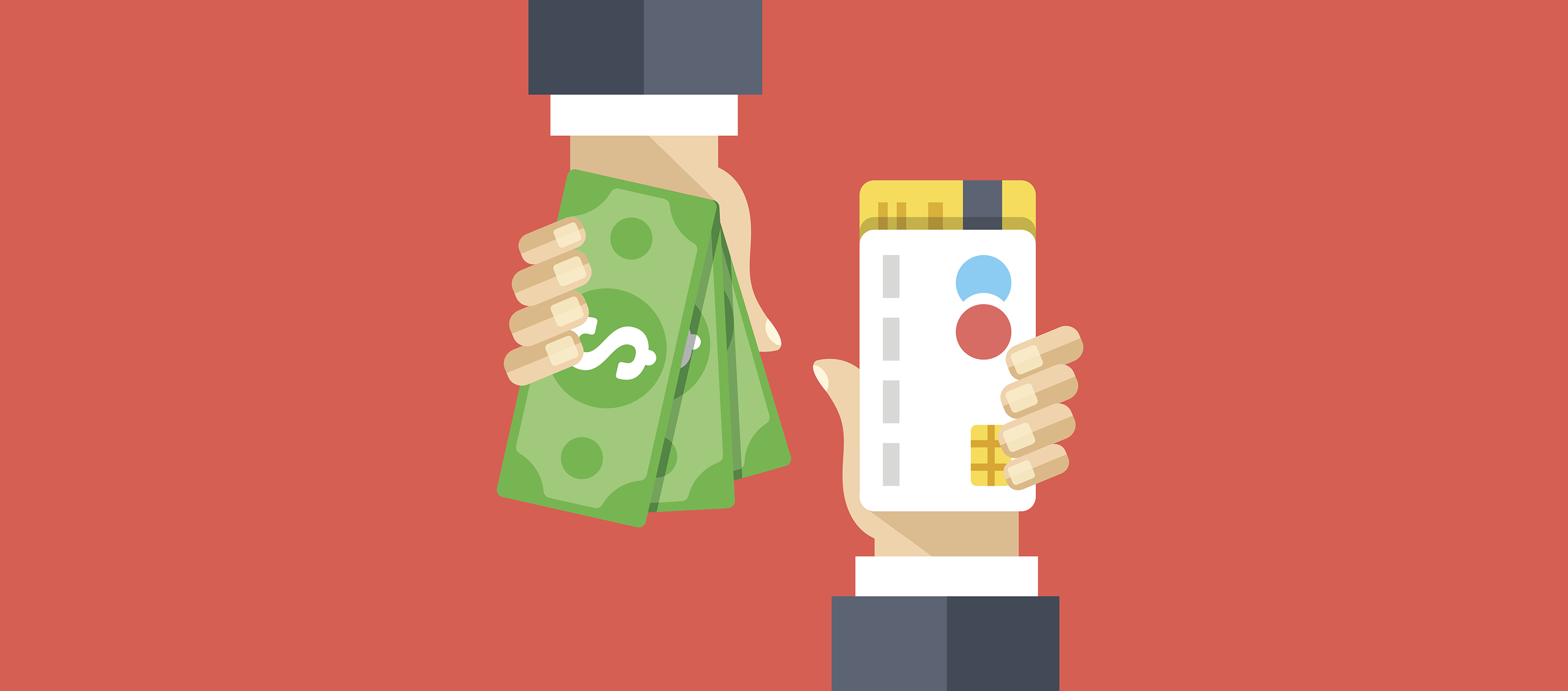5 tips for finally tackling your credit card debt
Ignoring it isn't going to make it go away


A free daily email with the biggest news stories of the day – and the best features from TheWeek.com
You are now subscribed
Your newsletter sign-up was successful
Credit cards are a wonderfully useful financial tool. They're good resources to have in case of an emergency, they boost your credit, and sometimes, they offer a handful of perks, like airline miles or cash back. But all too often, people find themselves relying too heavily on credit cards. They get caught in an unending cycle of paying only the minimum amount each month, satisfying the credit card companies but never reducing the actual debt they owe.
If you're stuck in this situation, here are a few tips for getting past the initial fear of confronting your credit card debt and getting back on track financially.
1. Do an official debt tally
The Week
Escape your echo chamber. Get the facts behind the news, plus analysis from multiple perspectives.

Sign up for The Week's Free Newsletters
From our morning news briefing to a weekly Good News Newsletter, get the best of The Week delivered directly to your inbox.
From our morning news briefing to a weekly Good News Newsletter, get the best of The Week delivered directly to your inbox.
Have you been avoiding your bills, pretending they might just go away? Stop doing that! While this is a common strategy, it doesn't have any positive outcomes. To conquer your debt, the first step is gathering all of your bills and totaling exactly how much credit card debt you have amassed. You'll want to also include any outstanding balances, like medical debt, so you have a full picture of the challenge you're facing.
2. Write out all expenses
Next, write out all of your recurring monthly bills. Include as much detail as possible so you can make the best decisions on how to move forward. Don't forget your average monthly grocery bill, any additional food expenses (yes, that morning coffee from Starbucks counts), and an average of your entertainment expenditures like movie passes, concert tickets, or any cultural memberships to the local museum or zoo.
3. Set a realistic budget — and stick to it
A free daily email with the biggest news stories of the day – and the best features from TheWeek.com
Those little expenses and extra purchases can add up quickly, preventing you from making any progress on your debt. While not always the case, many people benefit from eliminating these extras for a time. Taking the money you typically spend on two lunches out a week and instead putting that toward your debt might seem frivolous at the time, but it really helps. Instead of heading out for lunch, pack leftovers from last night's dinner and remind yourself that this is only for a short time until you've gotten back on track. Oh, and if you're paying a monthly membership to a gym, but haven't set foot on a treadmill for months, cancel it, and take a (free!) nightly walk around your neighborhood instead.
4. Weigh options for repayment
Now that you have an idea of your monthly expenses, and you've put a number on your credit card debt, it's time to find the best option for repayment. This will vary depending on your circumstances, and you may wish to consult a financial planner to make the best decision. If you are a homeowner, refinancing your mortgage may provide you with a smaller monthly payment, allowing you to free up cash to put toward your credit card debt. According to Bridget McGee, a Maryland mortgage loan originator affectionately known to her clients as the Maryland Mortgage Mama, this may also save you on interest in the long run. "Since mortgage interest is tax deductible, and typically significantly lower than credit card interest rates, this may be a good option," she says.
Another option is a personal loan from your credit union. After approval, your bank will directly pay off your balances to the credit card companies, and you will make a payment each month to your bank. These interest rates are typically lower than the credit card company's, and the rate is set and locked at the time of the loan. This is a great way to pay off the debts, but be careful not to fall into old habits and run up debt again.
If you want to tackle the balances yourself, McGee recommends attacking the card with the highest balance and interest rate first using what financial guru Dave Ramsey refers to as the debt snowball. This means focusing on putting as much money toward that card's balance while still paying the minimum on your other cards. Once the balance on that first card hits zero, McGee says to move on to the next card with the next highest debt and interest rate, and work your way down the list until the debt is completely eliminated.
Nonprofit credit consolidation services also exist, but should be considered a last resort as utilizing them will lower your credit score and your ability to obtain a loan in the near future. These services negotiate lower rates on your behalf, and you send them a monthly payment, which they distribute to the credit card companies. Before using one of these services, check their ratings with the Better Business Bureau, as some are more reputable than others.
5. Always pay on time
"If someone has a lot of credit cards with balances," McGee says, "it becomes more likely to miss a payment and further drop their credit score." If you miss a payment, this will lower your credit score, which will increase your interest rates, making it even harder to pay off your debt. Missing a payment can also mean an additional cash penalty, costing you even more. Make your payments on time, and if for some reason you are unable to make a payment, call your credit card company and negotiate a later payment date.
Paying down credit card debt can seem overwhelming at first. But instead of ignoring the problem and hoping it will go away, take charge of your finances and pay down those balances. Your credit rating will thank you.
